Agentic AI refers to self-contained, adaptive systems that possess the remarkable capability to make decisions and execute actions independently, without requiring continuous human oversight. These AI agents are meticulously designed with specific goals, rules, or parameters that guide their behavior. What sets agentic AI apart is its ability to adapt and modify its actions based on new data and evolving conditions. This dynamic adaptability enables agentic AI to excel in high-performance environments that demand rapid, autonomous responses.
It integrates lots of different technologies including machine learning, NLP, and reinforcement learning. Through machine learning, these agentic AI systems could observe patterns of data and keep making better decisions time and again. NLP can be very helpful as they understand the nature of human language to use more intuitive responses and interactions. Through the application of reinforcement learning, these agents are provided the capability of learning through experiences, adjusting their actions to improve future actions from past consequences of choices. For instance, the reactions of these systems are not just to immediate inputs but also evolve progressively with the environment, thus ideal for certain applications requiring a combination of flexibility, speed, and precision.
Use Cases of Agentic AI in Various Industries
Agentic AI is transforming sectors by introducing more sophisticated and autonomous decision-making. Let’s understand the impact of agentic AI in the healthcare sector, finance sector, e-commerce sector, robotics, and cybersecurity sector.
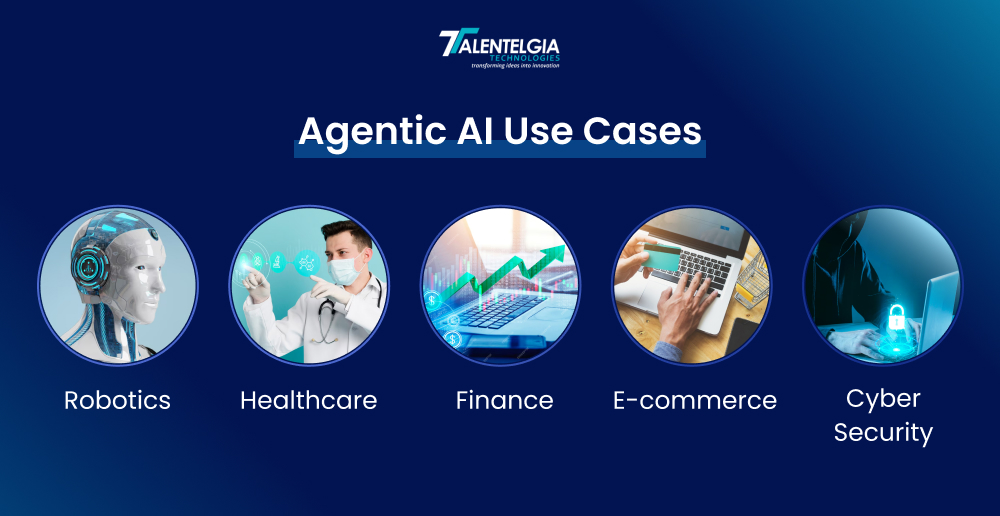
Agentic AI in Robotics
Agentic AI is revolutionizing robotics to navigate paths and generally interact by controlling it. In logistics, agentic AI appears to advance in determining routes, finding previously unknown obstacles, and recalculation paths in real-time in the supply chain, making it more efficient and safe.
1.Autonomous Navigation Systems
Agentic AI is important in autonomous navigation operations, especially logistics and transportation. Robots and drones employing agentic AI work to use sensors and complex pathfinding algorithms to find routes, avoid obstacles, and optimize routes along the way. For instance, an autonomous warehouse robot could move through a labyrinthine floor plan avoiding employees and machines as it seeks out the most efficient path to retrieve items for shipping. Such systems learn continually with every navigation attempt, improving their routes based on the discovery of new obstacles and making them critical in supply chain management that focuses on efficiency and safety.
2. Collaborative Robots (Cobots)
These collaborative robots are engineered to work along with people in manufacturing and other sectors.
Agentic AI equips the cobot with an understanding of what people do and responds accordingly to help ensure both safe and effective collaboration. For example, in an automobile manufacturing company, AI cobots could identify that a human associate is working on a specific task and change their actions so that it coalesces with theirs, such as holding a piece in place or tightening screws. These cobots learn by repetition, which makes them more efficient and accurate and therefore very priceless in industries where their ability to ensure safety and adaptability can make all the difference in the production process.
Also Read: Robotic Process Automation Companies in Saudi Arabia
Agentic AI in Healthcare
The revolution of agentic AI will free healthcare from self-driving diagnostics and personalized treatment planning. AI-powered imaging technologies can scrutinize millions of images to discover early and fewer errors in diseases like cancer and cardiovascular conditions than ever before.
1. Autonomous Diagnostics Systems
Agentic AI systems in the healthcare diagnostic system can help doctors through higher accuracy diagnostics. For instance, AI-based imaging technologies process thousands of medical images per second to identify the existence of patterns and anomalies in the images that might relate to diseases like cancer or cardiovascular issues. Such systems, through deep learning, know to learn from new cases and outcomes and to enhance their accuracy further, leading to better performance than conventional methods of diagnosis. Agentic AI in diagnostics reduces human error, accelerates diagnosis times, and can detect patterns that may be missed in manual assessments, thus improving the outcomes of patients. Personalized Treatment Plans.
Advanced Agentic
AI Solutions Trusted by leading industries
for adaptive, AI-driven
efficiency.

2. Personalized Treatment Plans
Agentic AI is fundamental in tailoring healthcare to individual patients, especially chronic diseases such as diabetes, cancer, and cardiovascular disorders.
The analysis includes patient history, genetic factors, lifestyle data, and real-time health metrics, making these systems adjust their treatment plans autonomously. For instance, an agentic AI might recommend a modification in an insulin program for a diabetic patient based on blood sugar trends, food ingestion, and other types of exercise with learned feedback from the patient. Such tailor-made alterations not only enhance the efficacy of treatment but also reduce the probability of hazardous side effects in the treatment, thus making healthcare more precise and preventive. Finance Algorithmic Trading Systems
Agentic AI in Finance
Agentic AI is changing the face of finance through the self-manding of trading coupled with sophisticated fraud detection. Algorithmic trading using agentic AI takes real-time market data, drives trades to execute within milliseconds of having learned patterns, maximizes profits, and minimizes losses.
1.Algorithmic Trading Systems
Financial markets thrive on speed and precision, and agentic AI-driven algorithmic trading platforms bring a transformative advantage to this sector. These systems can autonomously execute high-frequency trades by analyzing market trends and patterns in real-time, adjusting strategies within milliseconds based on live data. By learning from market shifts and past outcomes, agentic trading systems dynamically refine their approaches to maximize gains and minimize losses. The autonomous nature of these systems allows them to respond to unexpected market events without human intervention, giving investment firms a competitive edge in volatile markets.
2. Fraud Detection Mechanisms
Agentic systems for trading are dynamic, self-aware, and learn their experience with the changing scenario in the market and how it had played out initially, thus maximizing gains, but minimizing losses. Their self-sufficient characteristics make the system react to an unanticipating event in a market without any human involvement and therefore give an investment company a competitive edge in terms of market turbulence. Mechanisms for Fraud Detection The agency AI is significant in dealing with fraud by observing every transaction continuously and then reporting suspicious behaviors. These systems will identify fraud patterns by scanning numerous user behavior, transaction history, and location datasets.
For example, an agentic system within banking can freeze an account on its own if some large transfer has been conducted from an unknown location. It learns over time, can identify increasingly complex fraud schemes, adapt its detection techniques, and improve measures of protection without needing manual changes. Therefore, it supports providing better real-time security.
Agentic AI in E-commerce
Agentic AI is transforming e-commerce by developing recommendation engines that can process minute detail information relating to customers’ behavior to make very informed decisions. Recommendation engines in AI design give recommendations for products based on the preferences and surfing and purchase history of individual users toward enhancing personalized shopping experiences driving engagement and sales.
1. Recommendation Engines
E-commerce Recommendation Engines A recommendation engine is central to the e-commerce experience in the form of agentic AI, as it customizes product recommendations based on each user’s preferences and behavior. They analyze the history of browsing, purchase patterns, and demographic information as much as possible.
Think of an AI engine on top of a big e-commerce portal. It could check a user’s search for exercise equipment and automatically recommend appropriate things like nutritional supplements because the user is interested in products related to fitness in the recent past. Over time, these systems optimize their algorithms based on the interactions of users with recommendations and, therefore, create an engaging, personalized shopping experience in a bid to drive both sales and client satisfaction.
2. Customer Behavior Analysis
Alfa AI systems also carry out detailed analyses of client behavior to help e-commerce multichannel marketing achieve optimization in strategies. For instance, with agentic AI, one can study the browsing patterns and purchase history of browsers and determine the time spent on different product pages. Based on this analysis, customers can be categorized into certain groups and future purchasing behavior can be predicted. This data allows businesses to autonomously deploy targeted promotions and customize user interfaces. For instance, a system may determine that one segment likes a certain response to seasonal discounts. Automatically adjusting marketing tactics based on that information will improve customer engagement and help in conversion rates.
Agentic AI in Cybersecurity
Agentic AI shapes cybersecurity services as it automatically finds threats and enforces policies in real time; AI systems, through observing activities on the network, can identify suspicious patterns and respond instantly to breaches, such as isolating compromised devices in the middle of a ransomware attack to prevent further damage.
1. Threat Detection and Response Automation
Agentic AI can automatically detect and neutralize threats by monitoring network activity and identifying patterns that seem unusual.
AI-driven systems can autonomously respond to in-progress breaches, such as isolating compromised devices or generating alerts for security teams. For instance, a large corporation can deploy an agentic AI system to monitor its network for signs of a ransomware attack. In case of abnormal data encryption, the system can immediately quarantine the affected segments to avoid the spread and minimize more damage. These systems are always learning from new threats, and in real time, evolve strategies to keep ahead of attackers.
2. Security Policy Enforcement
Threat detection is not the only aspect; agentic AI enforces security policies in an organization by ensuring compliance with established security protocols. These systems track user activity, access controls, and system configurations, automatically making corrections in the event of policy violation.
For example, in a bank, an agentic AI may detect an unauthorized login attempt and automatically apply multi-factor authentication to ensure that its security policies are implemented. These autonomous adaptations better secure the environment while preventing IT personnel from having to dedicate enormous amounts of time to managing compliance proactively and efficiently.
Future Trends in Agentic AI
The field of agentic AI is developing rapidly, and new applications along with the corresponding ethical issues will emerge as this research evolves. For example, one instance of this is multi-agent systems, which refer to a network of AI agents that collaboratively solve complex problems, as this finds increasingly more application areas, including smart cities. As agentic AI continues to evolve, it will be catapulted to great prominence in fields such as urban planning, disaster response, advanced manufacturing, and many others, significantly repositioning the position of AI.
Core Technologies Behind Agentic AI
Agentic AI bases its development foundation on several basic technologies that enable it to run both autonomously and adaptable:
- Machine Learning Algorithms
This has been the essence of agentic AI with machine learning, which allows artificial intelligence to spot patterns and learn from them so that proper decisions can be made on time. Such agents may use supervised learning, unsupervised learning, or deep learning. These kinds of learning enable such agents to analyze historical and 0 real-time data and adapt strategies based on changing patterns. Adaptation would be the prime reason agentic AI succeeds in performing in dynamic environments, in which decisions become optimized concerning both accuracy and relevance.
- Natural Language Processing (NLP) Techniques
Natural Language Processing equips agentic AI with the ability to understand, interpret, and respond to human language to achieve smoother and more intuitive interaction. Such systems are thus equipped with contextual information, sentiment, and much more nuanced human input in the interaction. Therefore, such systems partake in complex conversations and respond appropriately. This makes NLP very important as it is considered an essential technology when virtual assistants, customer service bots, or any interface requires smooth human-AI collaboration.
- Reinforcement Learning Frameworks
Reinforcement learning allows agentic AI systems to learn through trial and error, refining their action strategies based on the feedback obtained from past interactions about what happened. The outcomes from rewards or penalties result in the continuous optimization of the decision-making processes of RL-driven AI agents. They are particularly useful in settings that are complex and are likely to have unpredictable outcome variables, such as financial trading or autonomous driving areas where the agent adjusts the strategy dynamically to acquire the best possible results.
Conclusion
Agentic AI is innovation at the front lines. This type of AI will bring self-sufficient and adaptive systems that can decide and act without human intervention, on an ongoing basis. Combining machine learning, NLP, and reinforcement learning, agentic AI promises to bring a massive value proposition across healthcare diagnostics and financial trading, e-commerce, robotics, and cybersecurity, among others.
With these cognitive agents in the future, they promise to increasingly play a pivotal role in dynamic, high-performance environments and transform how sectors respond to real-time needs. Further on, agentic AI will be at the forefront of transformation, efficiency, and intelligence delivery on diverse applications.


 Healthcare App Development Services
Healthcare App Development Services
 Real Estate Web Development Services
Real Estate Web Development Services
 E-Commerce App Development Services
E-Commerce App Development Services E-Commerce Web Development Services
E-Commerce Web Development Services Blockchain E-commerce Development Company
Blockchain E-commerce Development Company
 Fintech App Development Services
Fintech App Development Services Fintech Web Development
Fintech Web Development Blockchain Fintech Development Company
Blockchain Fintech Development Company
 E-Learning App Development Services
E-Learning App Development Services
 Restaurant App Development Company
Restaurant App Development Company
 Mobile Game Development Company
Mobile Game Development Company
 Travel App Development Company
Travel App Development Company
 Automotive Web Design
Automotive Web Design
 AI Traffic Management System
AI Traffic Management System
 AI Inventory Management Software
AI Inventory Management Software
 AI Software Development
AI Software Development  AI Development Company
AI Development Company  AI App Development Services
AI App Development Services  ChatGPT integration services
ChatGPT integration services  AI Integration Services
AI Integration Services  Generative AI Development Services
Generative AI Development Services  Natural Language Processing Company
Natural Language Processing Company Machine Learning Development
Machine Learning Development  Machine learning consulting services
Machine learning consulting services  Blockchain Development
Blockchain Development  Blockchain Software Development
Blockchain Software Development  Smart Contract Development Company
Smart Contract Development Company  NFT Marketplace Development Services
NFT Marketplace Development Services  Asset Tokenization Company
Asset Tokenization Company DeFi Wallet Development Company
DeFi Wallet Development Company Mobile App Development
Mobile App Development  IOS App Development
IOS App Development  Android App Development
Android App Development  Cross-Platform App Development
Cross-Platform App Development  Augmented Reality (AR) App Development
Augmented Reality (AR) App Development  Virtual Reality (VR) App Development
Virtual Reality (VR) App Development  Web App Development
Web App Development  SaaS App Development
SaaS App Development Flutter
Flutter  React Native
React Native  Swift (IOS)
Swift (IOS)  Kotlin (Android)
Kotlin (Android)  Mean Stack Development
Mean Stack Development  AngularJS Development
AngularJS Development  MongoDB Development
MongoDB Development  Nodejs Development
Nodejs Development  Database Development
Database Development Ruby on Rails Development
Ruby on Rails Development Expressjs Development
Expressjs Development  Full Stack Development
Full Stack Development  Web Development Services
Web Development Services  Laravel Development
Laravel Development  LAMP Development
LAMP Development  Custom PHP Development
Custom PHP Development  .Net Development
.Net Development  User Experience Design Services
User Experience Design Services  User Interface Design Services
User Interface Design Services  Automated Testing
Automated Testing  Manual Testing
Manual Testing  Digital Marketing Services
Digital Marketing Services 
 Ride-Sharing And Taxi Services
Ride-Sharing And Taxi Services Food Delivery Services
Food Delivery Services Grocery Delivery Services
Grocery Delivery Services Transportation And Logistics
Transportation And Logistics Car Wash App
Car Wash App Home Services App
Home Services App ERP Development Services
ERP Development Services CMS Development Services
CMS Development Services LMS Development
LMS Development CRM Development
CRM Development DevOps Development Services
DevOps Development Services AI Business Solutions
AI Business Solutions AI Cloud Solutions
AI Cloud Solutions AI Chatbot Development
AI Chatbot Development API Development
API Development Blockchain Product Development
Blockchain Product Development Cryptocurrency Wallet Development
Cryptocurrency Wallet Development About Talentelgia
About Talentelgia  Our Team
Our Team  Our Culture
Our Culture 
 Healthcare App Development Services
Healthcare App Development Services Real Estate Web Development Services
Real Estate Web Development Services E-Commerce App Development Services
E-Commerce App Development Services E-Commerce Web Development Services
E-Commerce Web Development Services Blockchain E-commerce
Development Company
Blockchain E-commerce
Development Company Fintech App Development Services
Fintech App Development Services Finance Web Development
Finance Web Development Blockchain Fintech
Development Company
Blockchain Fintech
Development Company E-Learning App Development Services
E-Learning App Development Services Restaurant App Development Company
Restaurant App Development Company Mobile Game Development Company
Mobile Game Development Company Travel App Development Company
Travel App Development Company Automotive Web Design
Automotive Web Design AI Traffic Management System
AI Traffic Management System AI Inventory Management Software
AI Inventory Management Software AI Software Development
AI Software Development AI Development Company
AI Development Company ChatGPT integration services
ChatGPT integration services AI Integration Services
AI Integration Services Machine Learning Development
Machine Learning Development Machine learning consulting services
Machine learning consulting services Blockchain Development
Blockchain Development Blockchain Software Development
Blockchain Software Development Smart contract development company
Smart contract development company NFT marketplace development services
NFT marketplace development services IOS App Development
IOS App Development Android App Development
Android App Development Cross-Platform App Development
Cross-Platform App Development Augmented Reality (AR) App
Development
Augmented Reality (AR) App
Development Virtual Reality (VR) App Development
Virtual Reality (VR) App Development Web App Development
Web App Development Flutter
Flutter React
Native
React
Native Swift
(IOS)
Swift
(IOS) Kotlin (Android)
Kotlin (Android) MEAN Stack Development
MEAN Stack Development AngularJS Development
AngularJS Development MongoDB Development
MongoDB Development Nodejs Development
Nodejs Development Database development services
Database development services Ruby on Rails Development services
Ruby on Rails Development services Expressjs Development
Expressjs Development Full Stack Development
Full Stack Development Web Development Services
Web Development Services Laravel Development
Laravel Development LAMP
Development
LAMP
Development Custom PHP Development
Custom PHP Development User Experience Design Services
User Experience Design Services User Interface Design Services
User Interface Design Services Automated Testing
Automated Testing Manual
Testing
Manual
Testing About Talentelgia
About Talentelgia Our Team
Our Team Our Culture
Our Culture
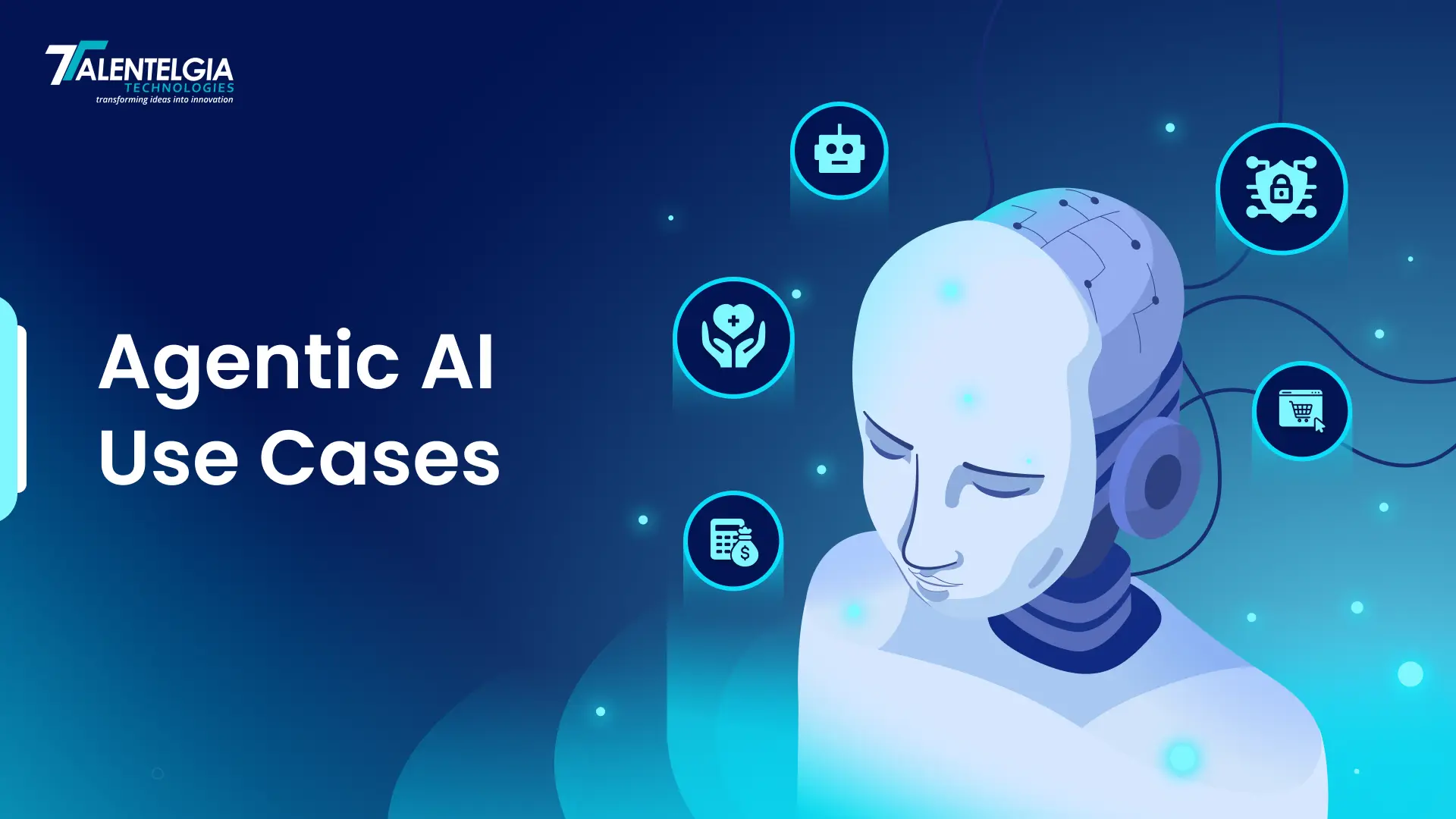

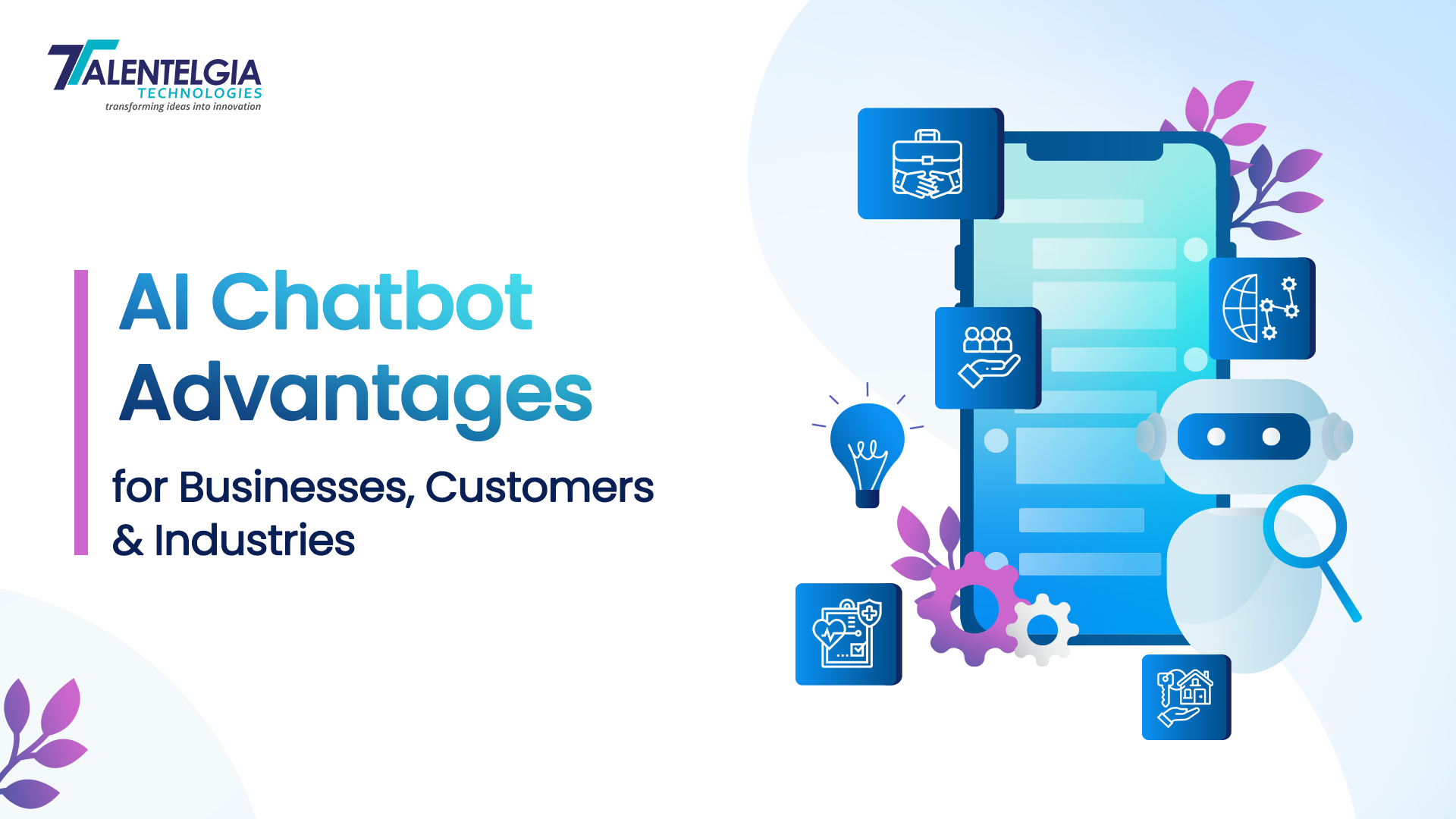

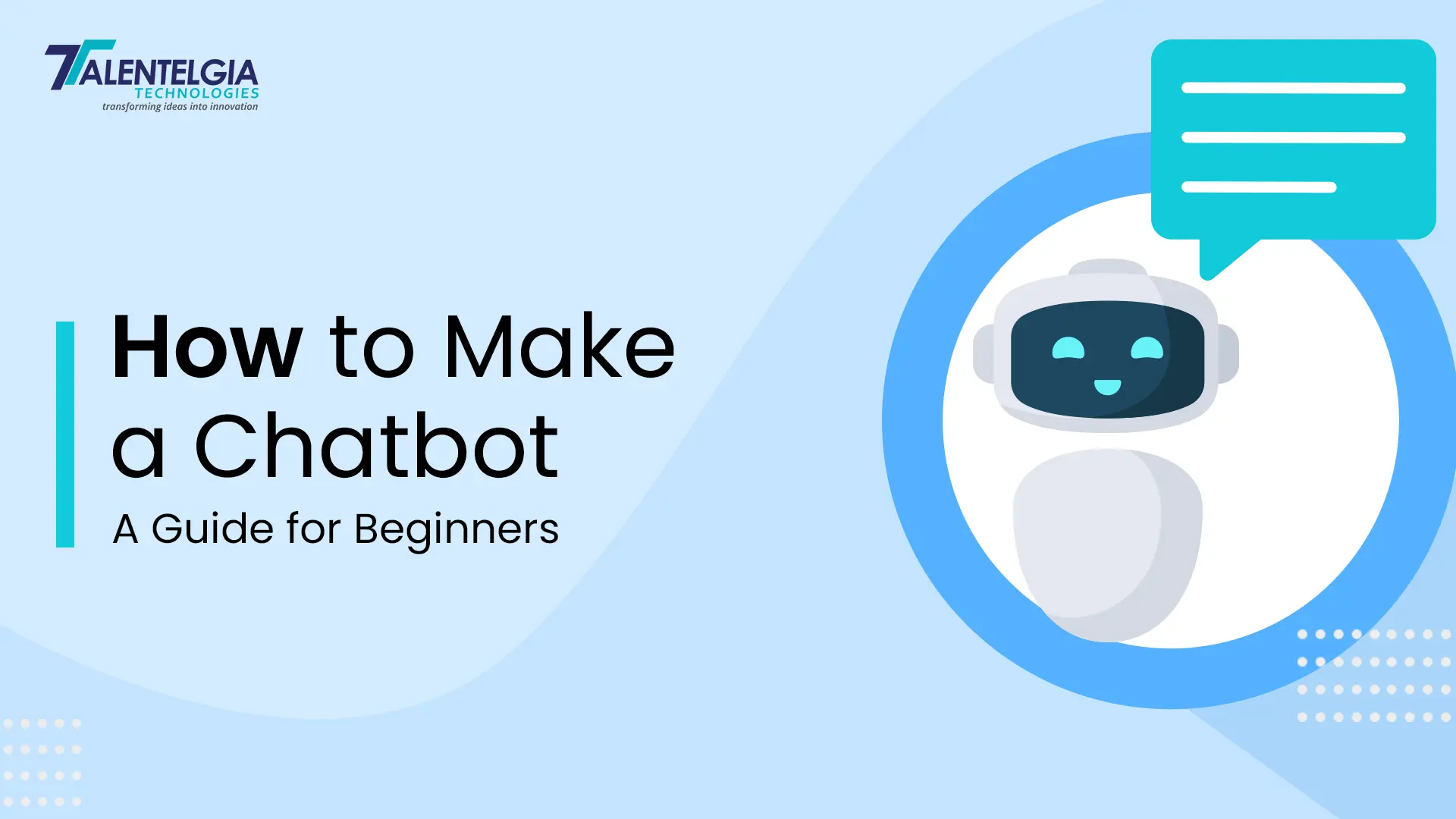
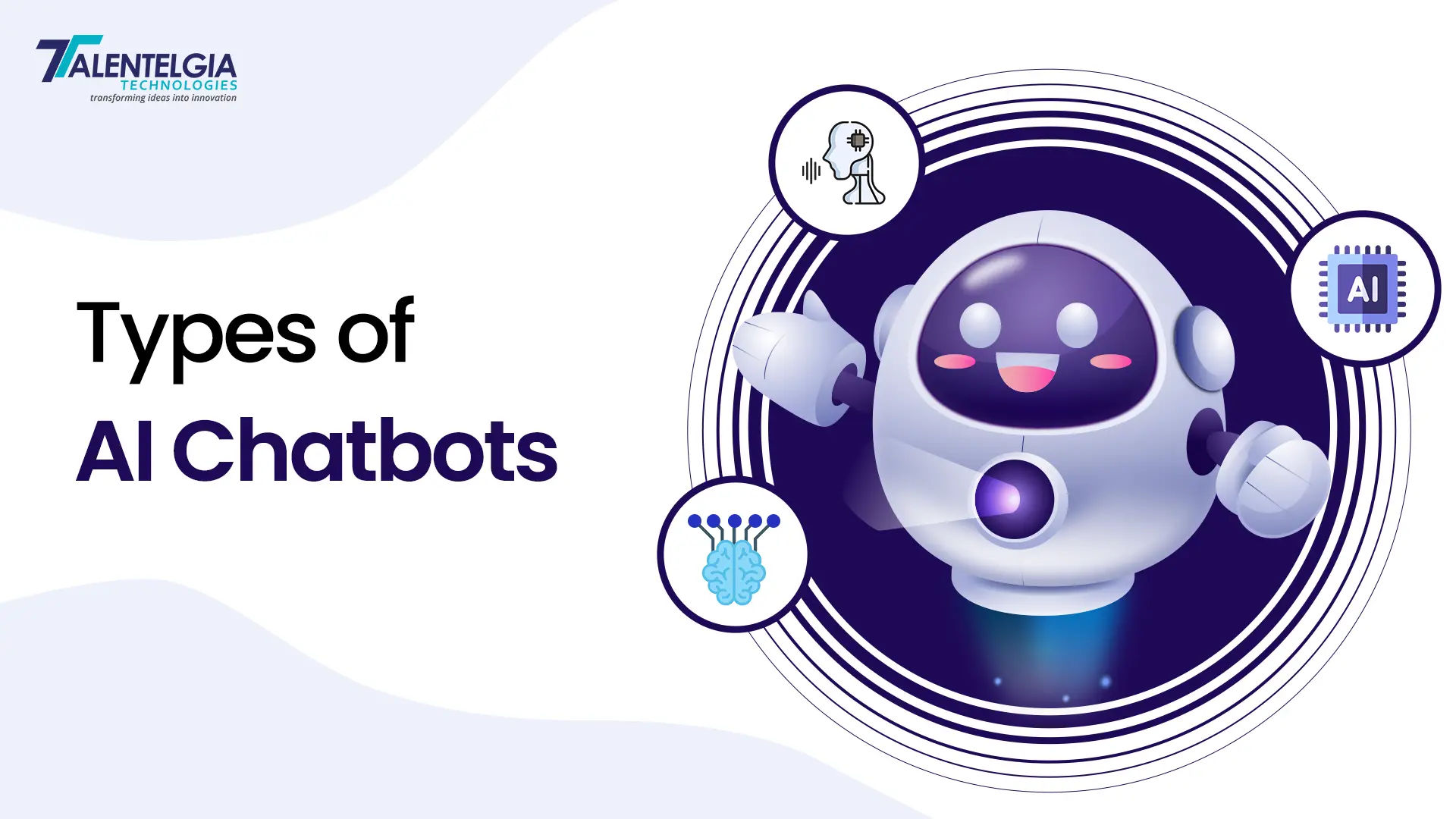











 Write us on:
Write us on:  Business queries:
Business queries:  HR:
HR: 




